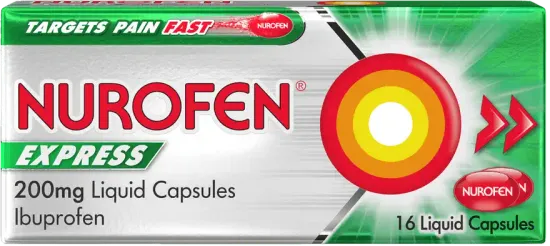Prepare to Battle Against Cold and Flu
When cold and flu season strikes, symptoms like sore throats, runny noses, and body aches can leave you feeling less than your best. Most of us will catch a cold at some point.
On average, adults catch two to three colds a year while children may experience them four or more times a year.
Experiencing cold and flu symptoms may impact work or school, so you should consider taking time off and not going back until it’s been at least 24 hours since you or your child had a fever. There are effective ways to relieve cold and flu symptoms and support recovery.
Here’s what we’ll cover:
- What causes colds and flu
- The difference between cold and flu symptoms
- How long cold and flu symptoms last
- Remedies, medications, and tips to manage cold and flu symptoms
- Cold and flu prevention tips to avoid catching and spreading illness
What’s Behind Cold and Flu?
There are around 200 viruses that can cause colds with the rhinovirus being the most common, responsible for about 50% of cases. Flu, or influenza, is caused by a different virus—specifically influenza A, B or C.
Both cold and flu viruses spread through direct or indirect contact with an infected person, often via airborne droplets from coughs and sneezes. Additionally, factors like insufficient sleep can weaken the immune system, making you more susceptible to catching these viruses.
What’s the Difference Between Cold and Flu Symptoms?
Though both cold and flu are viral infections affecting the nose, throat, and airways, flu symptoms tend to start more abruptly and can be more severe.
Cold symptoms
If you’re experiencing any of these symptoms, you likely have a common cold:
- Runny nose
- Nasal congestion
- Sore throat
- Red, watery eyes
- Sneezing
- Mild cough
- Mild fever (more common in children)
- Headache
- Fatigue
Flu symptoms
Flu symptoms are often more intense and can last longer. In addition to cold symptoms, flu may include:
- High fever, sweating, and chills
- Muscle and body aches
- Feeling tired
- Diarrhoea or tummy pain
Telling the Difference Between Cold and Flu
Flu | Cold |
Appears quickly within a few hours | Appears gradually |
Affects more than just your nose and throat | Affects mainly your nose and throat |
Makes you feel exhausted and too unwell to carry on as normal | Makes you feel unwell, but you still feel well enough to do your normal activities |
In some cases, a secondary infection, either viral or bacterial, can develop from a cold or flu. If your symptoms worsen or persist, it’s important to see your doctor.
How Long Do Cold and Flu Symptoms Last?
Cold and flu symptoms typically start to appear within 1-3 days, peak between day 4 and 7, and last about 7-10 days. Some symptoms, such as a lingering cough or fatigue, may persist for up to three weeks.
Cold and Flu Remedies
Although cold and flu symptoms can leave you feeling unwell, using appropriate remedies may help you feel more comfortable.
Here are some of the best ways to manage cold symptoms and help ease discomfort:
- Get plenty of rest and stay comfortably warm.
- Stay hydrated with fluids like water, herbal teas, and clear broths.
- Eat healthy meals to fuel your body’s recovery.
- Inhale steam during a hot shower or from a bowl of hot water, to help relieve a stuffy nose (supervise children when using steam. Do not let children breathe in steam from a bowl of hot water due to the risk of scalding).
- Soothe a sore throat by sucking on ice, drinking warm water with honey and lemon or gargling with salt water (not suitable for children)
Cold and Flu Medications
Certain medications can relieve specific cold and flu symptoms and offer suitable relief:
- Pain relievers like paracetamol or ibuprofen (such as Nurofen) are effective for fever, sore throat, and other aches and pains.
- Decongestants or saline nasal sprays can help clear nasal congestion. Nurofen Cold & Flu Relief 200mg Tablets are a combination product containing both ibuprofen and phenylephrine, a decongestant that helps relieve a blocked nose.
- Vapour Rubs to ease chesty coughs in babies and small children.
Important: Some cough and cold medicines may contain paracetamol or ibuprofen, so it's crucial to check the ingredients and dosage to avoid accidental overdosing, especially when using multiple medicines containing these ingredients. Always read the label, and if you’re unsure, consult your pharmacist or doctor.
Six Tips to Help Reduce the Spread of Cold or Flu
You can help prevent the spread of cold and flu by following these cold and flu prevention tips:
- Stay at home if you’re feeling unwell.
- Wash your hands regularly, especially before eating or after blowing your nose.
- Cover your mouth and nose when coughing or sneezing to prevent spreading germs.
- Avoid touching your face (eyes, nose, or mouth) to reduce the risk of transferring germs.
- Avoid sharing utensils or drinking glasses to prevent spreading germs.
- Disinfect household surfaces as well as children’s dummies and toys.
Consider flu vaccination
The flu vaccine is recommended annually for most children and high-risk groups, including the elderly, and people with chronic health conditions. This vaccine reduces the risk of severe flu complications. Consult your healthcare provider to see if vaccination is suitable for you.
Stay Well Year-Round
Being prepared for cold and flu season means knowing how to support your body if symptoms arise.
Simple remedies and over-the-counter cold and flu medicine for adults like Nurofen Cold & Flu Relief 200mg Tablets, along with rest and hydration, can help make a big difference in your recovery. Taking small steps to prevent the spread of cold and flu can also help keep those around you healthy.
This article is for general information purposes only and does not substitute for professional medical advice. Always consult a healthcare provider with any questions about treatment options. If you are pregnant, breastfeeding, or caring for a young child, consult your doctor before using any medication.
RT-M-qgdp1K




